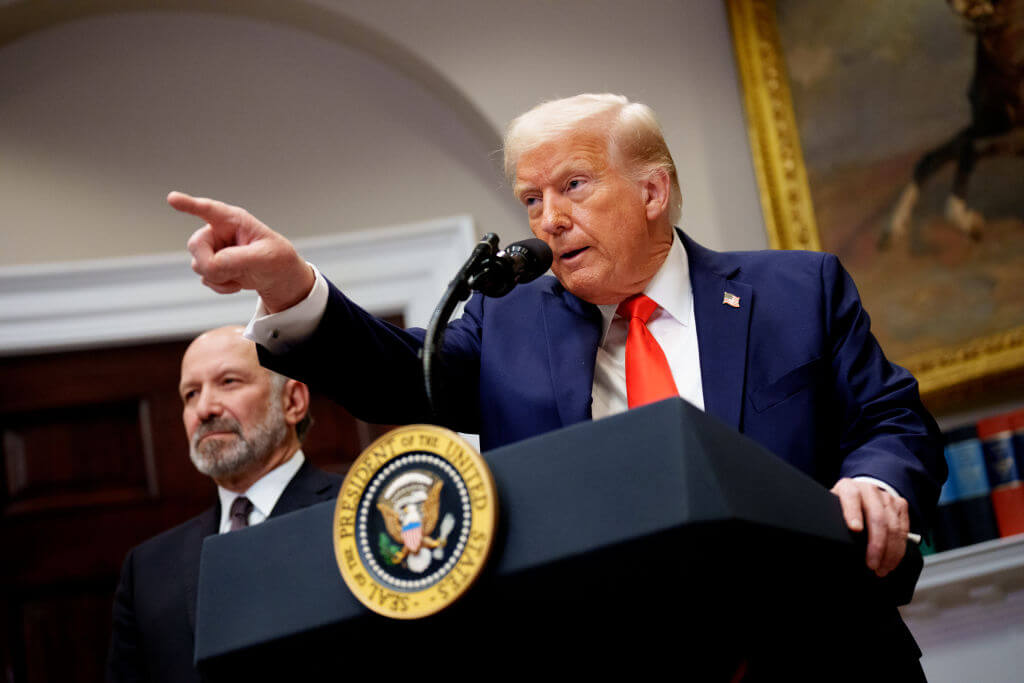Top Reform Rabbi Gives Watershed Address to Largest U.S. Muslim Group
The head of America’s largest Jewish denomination last week became the first top Jewish communal leader in recent memory to address a major American Muslim organization.
At the 44th annual conference of Chicago’s Islamic Society of North America last Friday, Rabbi Eric Yoffie, president of the Union for Reform Judaism, called for an end to discrimination against Muslims, more dialogue between religions, and for Jews and Muslims to unite in support of a two-state solution to the Israeli-Palestinian conflict.
A “profound ignorance” about Islam in the United States had helped spread the image of Muslims as the enemy, Yoffie said, pushing for a more active denunciation of those promoting such beliefs.
“The time has come to stand up to the opportunists in our midst — the media figures, religious leaders and politicians who demonize Muslims and bash Islam, exploiting the fears of their fellow citizens for their own purposes,” Yoffie said, drawing frequent rounds of applause and a standing ovation. “The time has come to end racial profiling and legal discrimination of any kind against Muslim Americans.”
Liberal Jewish organizations such as the URJ have sought Muslim partners at the national level for some time to bridge the gap widened in the wake of the terrorist attacks of September 11, 2001, and the ongoing violence in the Middle East. But it was the emergence of a more moderate leadership at the helm of ISNA, which has been accused of supporting Hamas, that made the breakthrough speech possible, URJ leaders say. ISNA’s condemnation of terrorism, including that conducted by Hamas and Hezbollah, and its open support for a two-state solution, as well as the participation of the Pentagon, Justice Department and Department of Homeland Security in this year’s conference, were key factors in Yoffie’s decision to accept the invitation to speak.
“We carefully looked at the leadership’s consistent and outspoken condemnation of terrorism and their backing for a two-state solution,” said Mark Pelavin, director of the URJ’s commission on inter-religious relations and a key player in the outreach effort along with ISNA’s co-founder, Sayyid Syeed. “The FBI and the Pentagon were represented, so this answers the allegations about terrorist associations.”
Yoffie’s overture drew criticism from David Harris, executive director of the American Jewish Committee.
“Here is another discredited group eager for mainstream recognition,” Harris wrote in a blog on the Web site of The Jerusalem Post. “Inadvertently, in the name of inter-religious dialogue, he gave it.”
Yoffie was not the only conference participant to come in for criticism. In a letter to Attorney General Alberto Gonzales, two Republican lawmakers, Peter Hoekstra of Michigan and Sue Myrick of North Carolina, called the Justice Department’s involvement in the ISNA confab a “grave mistake.”
ISNA, based in Plainfield, Ind., is the largest umbrella group of Muslims in North America, claiming more than 100,000 members and 300 constituent organizations, including mosques, campus groups and professional associations. The URJ, which represents some 1.5 million Jews and 900 congregations, said that both umbrella groups were in talks to set up a joint dialogue and education program involving local congregations and mosques.
In addition to his denunciations of anti-Muslim stances adopted by, among others, Christian leaders Pat Robertson and Franklin Graham and radio host Dennis Prager, Yoffie won plaudits by criticizing what he described as the Bush administration’s encroachment on civil liberties and its lack of involvement in seeking a just solution to the Israeli-Palestinian issue.
He warned, however, that while Jews should support Muslims in their fight against Islamophobia, Muslims should help fight against antisemitism and Holocaust denial.
Critics of Yoffie’s participation in the conference, including the AJCommittee’s Harris, have pointed out that ISNA is named as an unindicted co-conspirator in a major terrorism trial against the Holy Land Foundation for Relief and Development, a Texas-based charity shut down after the September 11, 2001, attacks for its alleged ties to Hamas. ISNA insists that it is not a target of the prosecution and that government officials have indicated the move was a tactic to allow the admission of evidence at the trial.
Steven Emerson, a counterterrorism expert who has accused several Muslim groups of being linked to terrorism, claims that an ISNA subsidiary had financial ties to Musa Abu Marzook, a Hamas leader indicted in the U.S. on terrorism-funding charges and now living in Syria. Emerson also contends that the organization still hosts speakers who have made anti-Jewish remarks in the past.
ISNA leaders have acknowledged that past leaders have on occasion expressed statements critical of Israel and Jews, but the current leaders stress that the group has now adopted a clear stance against such views.
In a statement released during the conference, the organization said that its condemnation of terrorism also included acts perpetrated by Hamas and Hezbollah, groups often considered in Muslim countries to be legitimate resistance movements.
The Forward is free to read, but it isn’t free to produce

I hope you appreciated this article. Before you go, I’d like to ask you to please support the Forward.
Now more than ever, American Jews need independent news they can trust, with reporting driven by truth, not ideology. We serve you, not any ideological agenda.
At a time when other newsrooms are closing or cutting back, the Forward has removed its paywall and invested additional resources to report on the ground from Israel and around the U.S. on the impact of the war, rising antisemitism and polarized discourse.
This is a great time to support independent Jewish journalism you rely on. Make a Passover gift today!
— Rachel Fishman Feddersen, Publisher and CEO
Most Popular
- 1

Opinion My Jewish moms group ousted me because I work for J Street. Is this what communal life has come to?
- 2
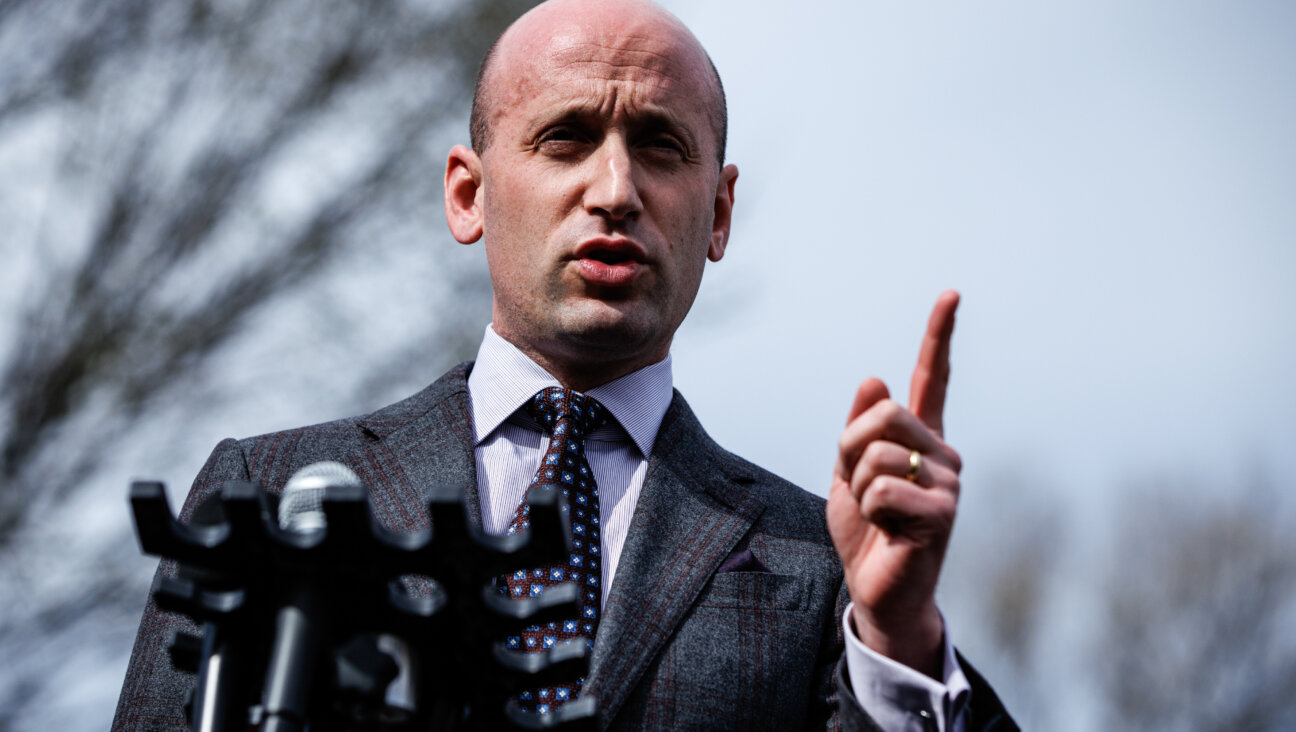
Opinion Stephen Miller’s cavalier cruelty misses the whole point of Passover
- 3
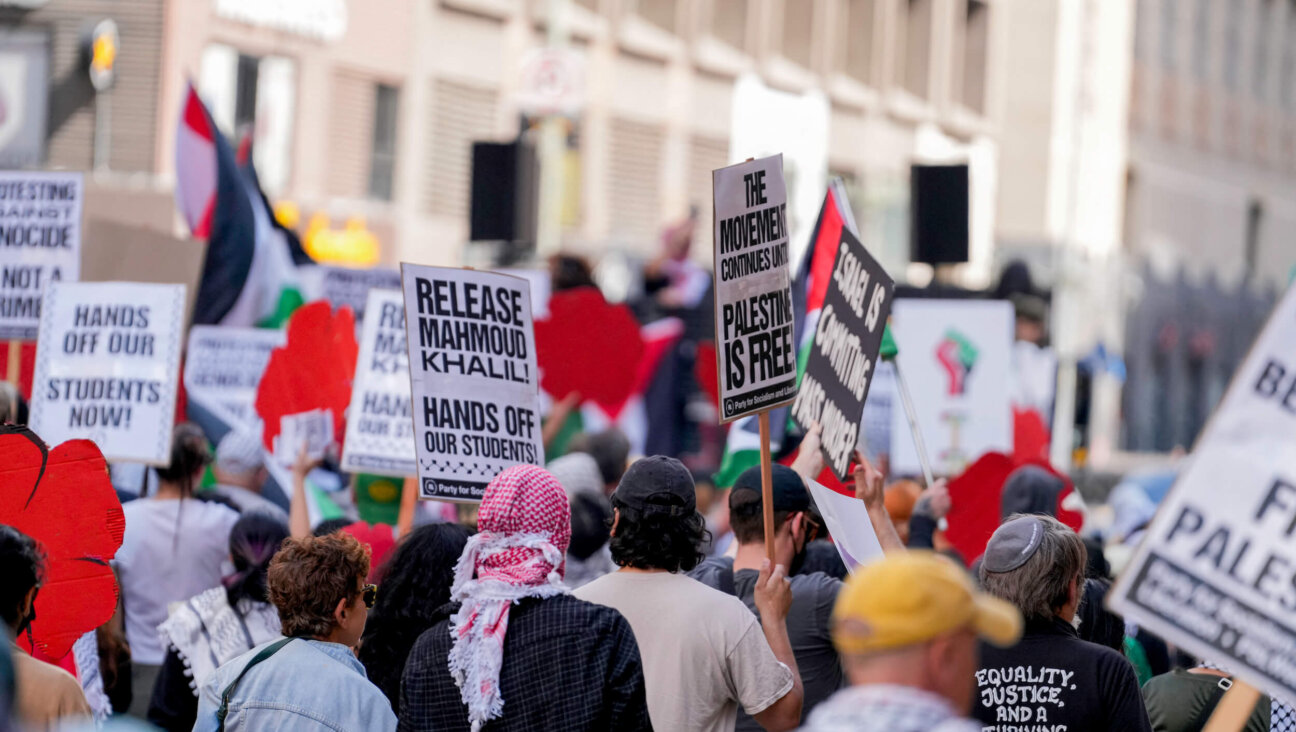
Opinion Passover teaches us why Jews should stand with Mahmoud Khalil
- 4

Opinion Pro-Palestinian protests enriched Jewish life on my campus. Trump’s actions will do the opposite.
In Case You Missed It
-
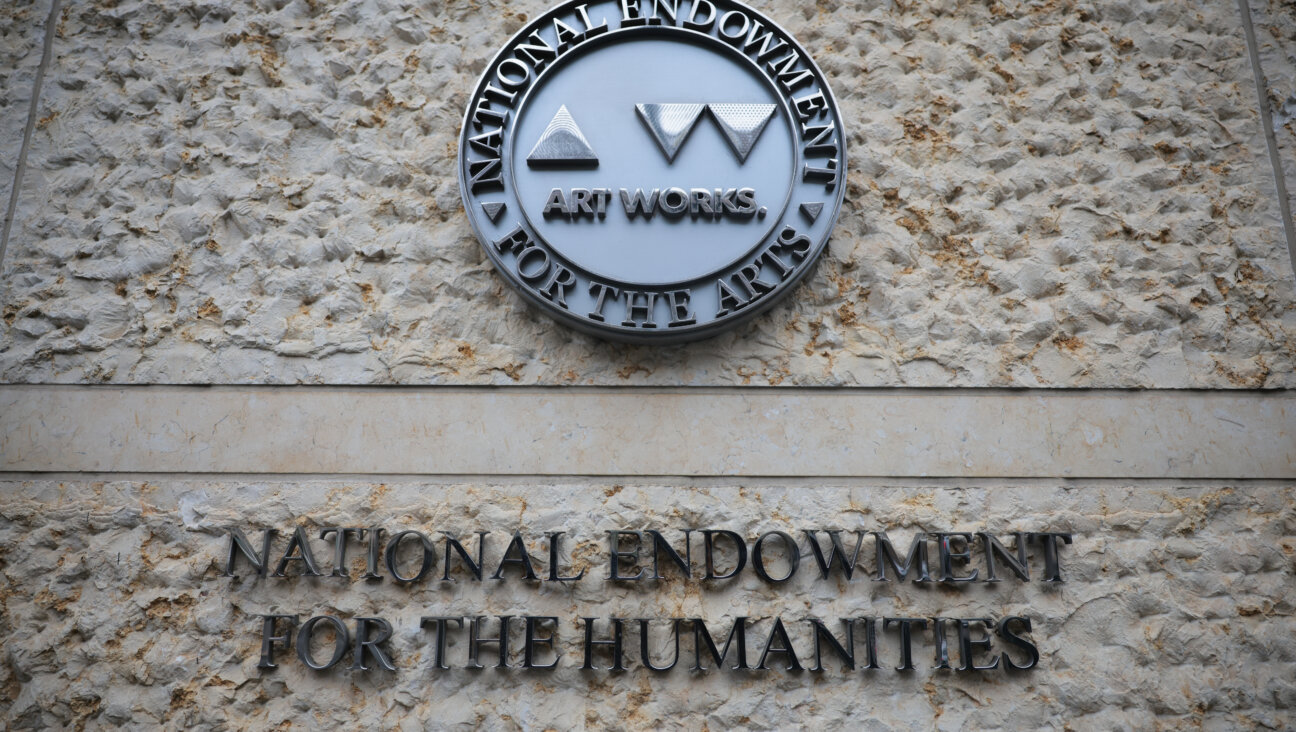
Culture Jews thought Trump wanted to fight antisemitism. Why did he cut all of their grants?
-
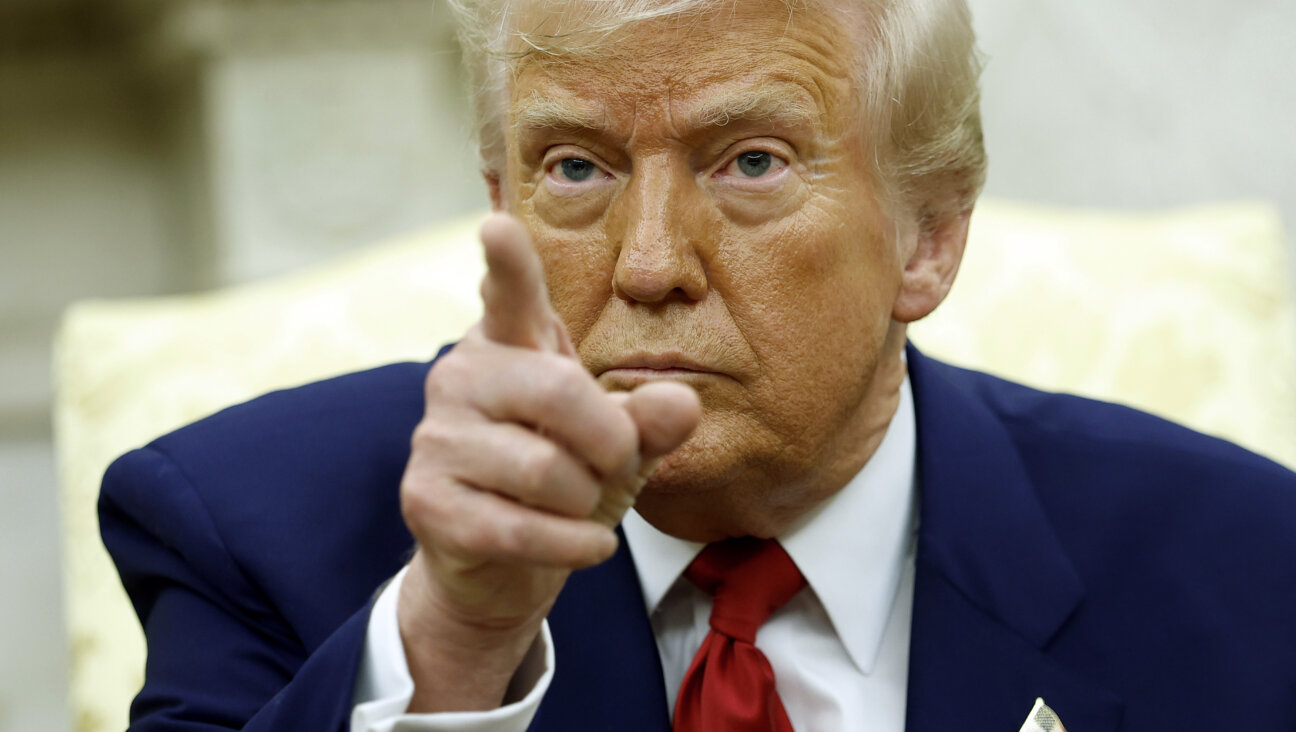
Opinion Trump’s followers see a savior, but Jewish historians know a false messiah when they see one
-
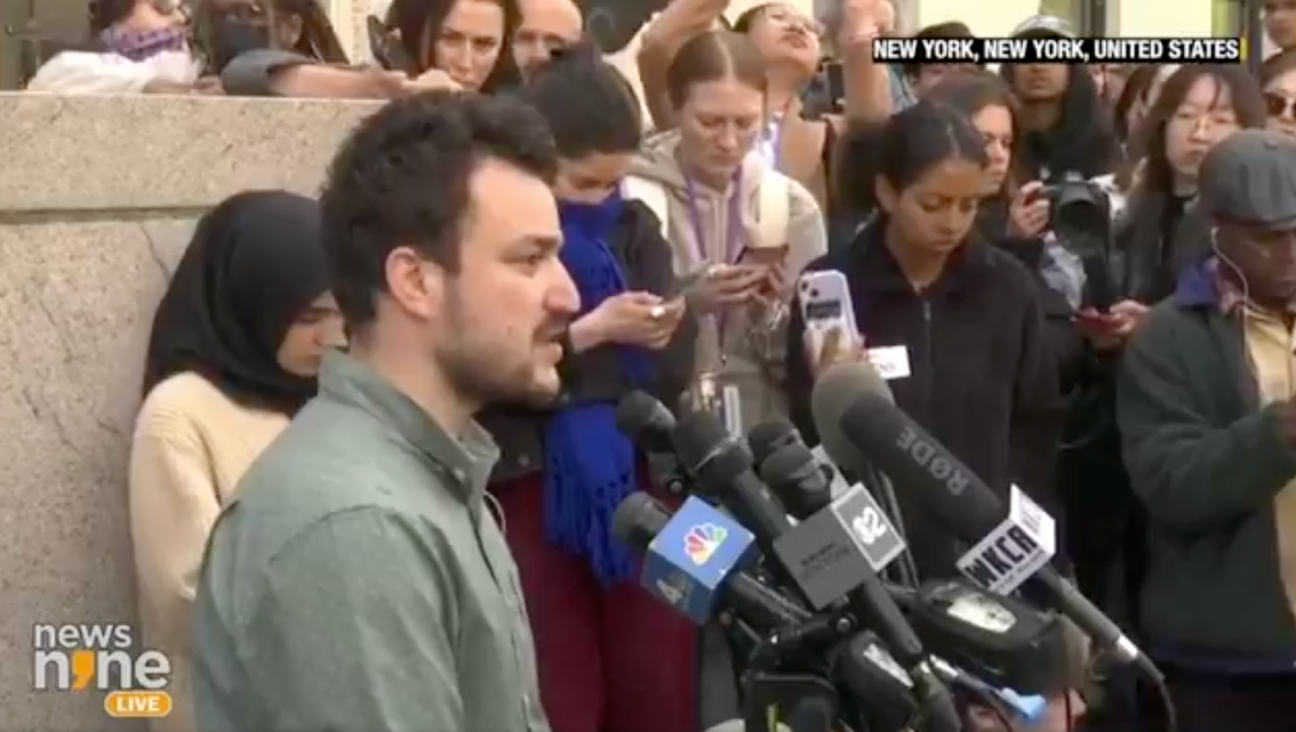
Fast Forward Trump administration can deport Mahmoud Khalil for undermining U.S. foreign policy on antisemitism, judge rules
-

Opinion This Passover, let’s retire the word ‘Zionist’ once and for all
-
Shop the Forward Store
100% of profits support our journalism
Republish This Story
Please read before republishing
We’re happy to make this story available to republish for free, unless it originated with JTA, Haaretz or another publication (as indicated on the article) and as long as you follow our guidelines.
You must comply with the following:
- Credit the Forward
- Retain our pixel
- Preserve our canonical link in Google search
- Add a noindex tag in Google search
See our full guidelines for more information, and this guide for detail about canonical URLs.
To republish, copy the HTML by clicking on the yellow button to the right; it includes our tracking pixel, all paragraph styles and hyperlinks, the author byline and credit to the Forward. It does not include images; to avoid copyright violations, you must add them manually, following our guidelines. Please email us at [email protected], subject line “republish,” with any questions or to let us know what stories you’re picking up.








